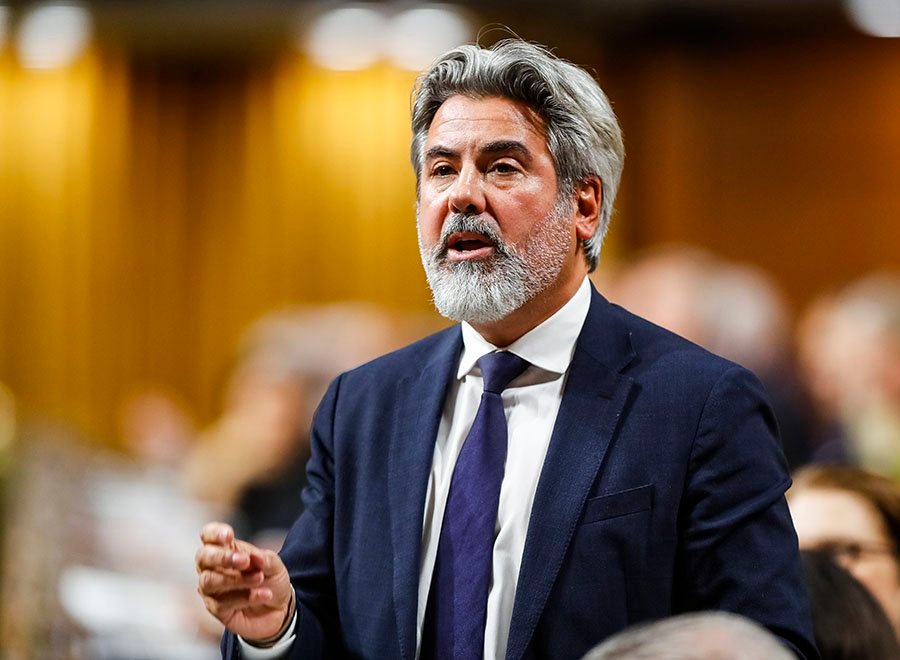
Martin C. Barry
With the federal government poised to release a “digital charter” outlining Canada’s plans to deal with hate speech and misinformation on the Internet, Liberal Heritage Minister Pablo Rodriguez says his department is near the point of announcing an anti-racism strategy that will also take abuses committed over the Internet into account.
Heritage Canada’s “anti-racism engagement” was launched last year with the goal of hearing what Canadians themselves have to say about racism and discrimination. An interactive digital platform launched for that purpose focused on issues where racism and discrimination most directly touch people’s lives, as well as policy areas that overlap with federal jurisdiction.
‘Racism does exist,’ he says
Since then, in-person consultation sessions have been held with community, leaders, experts, academics and other stakeholders across Canada. According to Rodriguez, his department’s anti-racism engagement report will confirm, among other things, that there is racism in Canada and that it is possibly also becoming worse.
“Nobody is saying that Canada is a racist country, but racism does exist here,” he said in an interview with Newsfirst Multimedia last week at the federal cabinet’s Montreal offices. “We’ve seen a rise in anti-Semitism – it’s very clear – a sharp rise. In Islamophobia also. We have to combat this rise in hate and anti-Semitism and all kinds of different forms of discrimination online and in the real world.”
Responsibilizing ‘web giants’
“And we, the government, have a role to play at different levels – including online – making sure that for some of the things we do we have to responsibilize the web giants,” he added. “They have a responsibility. There are things on the web that should not be there that encourage people towards violence and hatred, and that’s unacceptable. So we’ll be addressing that.”
Rodriguez said the strategy calls for anti-racism measures to be taken as soon as possible. “We know that fighting racism is not something that’s short, mid or long-term – you have to do it every day,” he said. “But you have to start somewhere and you have to start now. And this is what we’re doing with this strategy, which has different components.”

The Facebooks of this world
Rodriguez had few specifics as to how the strategy might directly impact major web service players, although he provided a broad overview. “We’re talking about the Facebooks of this world, where you can easily find hate which is online.
“Too often if something bad happens, they are saying sorry, but the impacts are still there. I think they have to take responsibility for who they are and what they do. They are making a lot of money. Fine – happy for them. But that comes with responsibilities.”
In Quebec, the Coalition Avenir Québec government hopes to pass its controversial Bill 21 banning the use of religious symbols by public servants into law before the National Assembly breaks for the summer. While some are suggesting the legislation foments division and animosity, Newsfirst Multimedia asked Rodriguez how his department could react should the bill pass.
Monitoring CAQ’s Bill 21
“We’re following that very closely,” he said, while noting that it is within provincial jurisdiction. “Is it going to be the same bill at the end of the process that it is now? I understood that the government was open to changes.”
More generally, he re-stated the federal Liberal government’s position on Bill 21. “We consider that a government should not tell a person what to wear or how to dress,” he said. “Also we think that nobody should have to choose between their religion and beliefs and having access to a good job.
“With that being said we’re following very closely what’s happening and seeing if there’s changes or not. We are keeping an eye on it, but understanding very well also that it’s happening in another jurisdiction – a provincial level not at our level.”
He had politics in his blood
Pablo Rodriguez’s introduction to politics came from his parents who were politically active in their native Argentina during the 1960s. His father, a lawyer, ran for high office while representing political prisoners who were jailed by the hardline Argentinian régime at the time.
“He was imprisoned and tortured many, many times,” said Rodriguez. Bombs were planted at the Rodriguez home shortly before they came to Canada in 1974, injuring the two parents and three children, while leaving no doubt it was time for them to leave Argentina.
On arrival in Canada, the family settled in Montreal’s Park Extension district. While life for them was hard at first, both of his parents went on to become distinguished scholars. At age 82, his father still teaches sociology in university.
A University of Sherbrooke business administration graduate, Rodriguez spent a good part of his early career working in public affairs and management of international humanitarian projects. During the early 2000s he was vice-president of Oxfam Québec.
A longtime and highly-dedicated supporter of the Liberal Party of Canada, Pablo Rodriguez was first elected MP for the Montreal riding of Honoré-Mercier in 2004. He has won every election in the riding since then, except for a brief hiatus in 2011 when the NDP prevailed during the party’s sweep of Quebec known as the “Orange Crush.”



